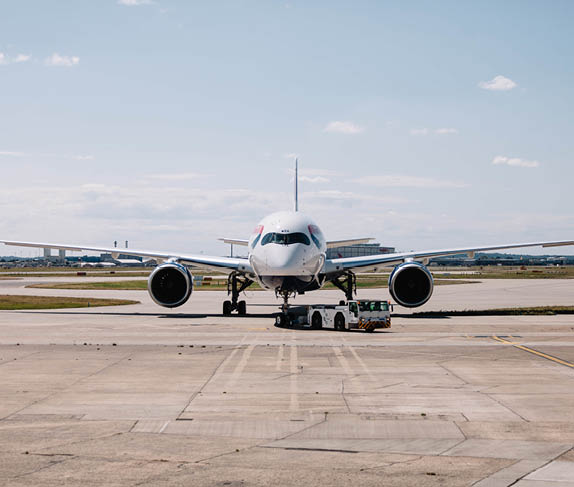Air Europa, the airline division of Globalia, continues to press ahead with its plan to modernize and expand and, as from today, offers Wi-Fi service to passengers on-board three Airbus 330, hand in hand with Panasonic Avionics Corporation, world leader in in-flight entertainment and in-flight communication.
As part of its launching activities, all Air Europa passengers flying to Havana, Buenos Aires and Sao Paulo will enjoy Free Wi-Fi during the flight.
Progressively, the airline belonging to Globalia Group, will install Wi-Fi via satellite on all its Airbus aircraft that operate long distance routes, the new Boeing 787 arriving this month will also have this service. Additionally the B787 aircraft will come with the system eX3 IFE to offer the passenger a unique in-flight entertainment experience.
The aircraft that offer Wi-Fi on-board, thanks to the innovative system eXConnect of Panasonic Avionics Corporation, are two Airbus 330-200 and one A330-300, it is estimated that from the month of July the entire long haul fleet with have Wi-Fi service on board.
The Wi-Fi service will be activated, above 10.000 meters, when the seat belt light is switched off, therefore it is not available during take-off and landing. From then on, passengers wishing to connect must keep the airplane mode activated on the mobile device in order to connect to the Wi-Fi “Ontheair” and after opening a browser select that rate most suits their needs.
Air Europa has selected three rates to choose from 7 euros for 15 Mb; a popular rate of 13 euros for 30 Mb that permits a longer navigating time or a premium rate of 20 euros which permits 50 Mb to navigate.
Clean Sky: MTU Aero Engines and partners develop new propulsion technologies
Clean Sky is the largest aviation technology research initiative ever launched by the European Commission. Under the effort, over 600 partners have joined forces to develop new technologies to further improve the environmental compatibility of aviation in the future. MTU Aero Engines, Germany’s leading engine manufacturer, also has a role in the project. “Our work doesn’t stop at developing new technologies for our high-pressure compressor and low-pressure turbine modules, we also qualify new partners for the European aerospace industry,” explains Dr. Rainer Martens, Chief Operating Officer at MTU Aero Engines.
Clean Sky aims at strengthening the European aviation industry and enhancing its international competitiveness. The two central tasks in pursuit of this objective are to develop advanced aircraft and engine technologies, and to qualify and integrate new partners from research and industry. In the industrial sector, the focus is on small and medium-sized enterprises. Germany’s leading engine manufacturer is doing a great job on both fronts. New, innovative propulsion system technologies were developed and integrated into a demonstrator: MTU is responsible for SAGE 4 (Sustainable And Green Engines), one of five Clean Sky engine demonstrators. The SAGE 4 demonstrator was tested in Munich late last year. The demonstrator is based on a geared turbofan engine and incorporates a number of innovations, including components – blades for example – that are made from new materials and come in a new design. In addition, the demonstrator features components produced using new manufacturing techniques. Advanced simulation methods and measurement techniques round off the gamut of new developments.
Partners from industry and research are participating in this sub-project alongside MTU. Most of the new companies and institutes to join MTU’s innovation value chain come from Germany, but not all: some are based in the United Kingdom, Italy, Austria and Sweden. “Our objective was to bring together the best in class, and that’s exactly what we’ve done,” Dr. Jörg Henne, Senior Vice President Engineering and Technology at MTU, sums up. The outcome is a win-win situation for both sides: “In addition to new hardware, we also gain new partners,” he explains. The cooperation under Clean Sky provides the partners with an opportunity to get a foothold in the European aviation industry for the first time, or to establish themselves in a specific segment of the industry.

